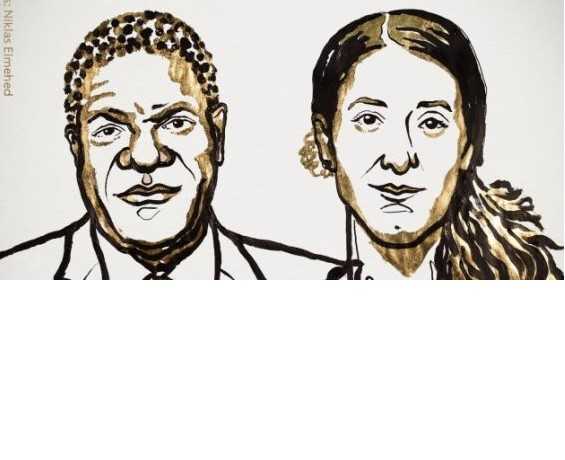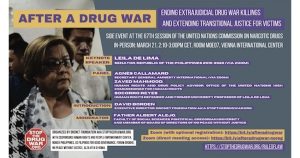Nadia Murad is a Yazidi human rights activist who, after losing her family and being held captive by Da’esh for 3 years, went on to found Nadia’s Initiative, an organisation “aimed at increasing advocacy for women and minorities and assisting to stabilize and redevelop communities in crisis”. Ms Murad’s powerful testimony about the violence she and other women were subjected to while in captivity resonated widely at the UN Security Council. In 2017, it led to the opening of an investigation into the crimes committed by ISIS against the Yazidi people and recognition of the genocide waged against the Yazidi people.
Dr Mukwege, a gynaecologist in the DRC and the founder of Panzi Hospital in Bakuva, was described by the Nobel Committee as “the foremost, most unifying symbol both nationally and internationally of the struggle to end sexual violence in war and armed conflict”. He and his team have treated thousands of women who were victims of brutal sexual assault and gang-rape during the Second Congo War and whose bodies were treated in unthinkable ways, often with unthinkable consequences. He promoted the use of reconstructive surgery for rape victims and criticised the Congolese Government for their inaction in preventing the use of rape as a strategy of war. While his life has repeatedly been threatened for his work, he continues to advocate for change and his hospital has treated tens of thousands of women andgirls since its founding.
The Committee weighed their decision on the need for greater visibility for war-time sexual violence, stating in their press release:
“This year marks a decade since the UN Security Council adopted Resolution 1820 (2008), which determined that the use of sexual violence as a weapon of war and armed conflict constitutes both a war crime and a threat to international peace and security. This is also set out in the Rome Statute of 1998, which governs the work of the International Criminal Court. The Statute establishes that sexual violence in war and armed conflict is a grave violation of international law. A more peaceful world can only be achieved if women and their fundamental rights and security are recognised and protected in war.”
NPWJ welcomes their induction into this esteemed group and looks forward to supporting continued efforts to end the use of sexual violence as a weapon of war. We also hope that the recognition of their work and the heightened attention to this issue leads to greater commitment and action within the international community, including the International Criminal Court to bring perpetrators of sexual and gender-based crimesto justice.



